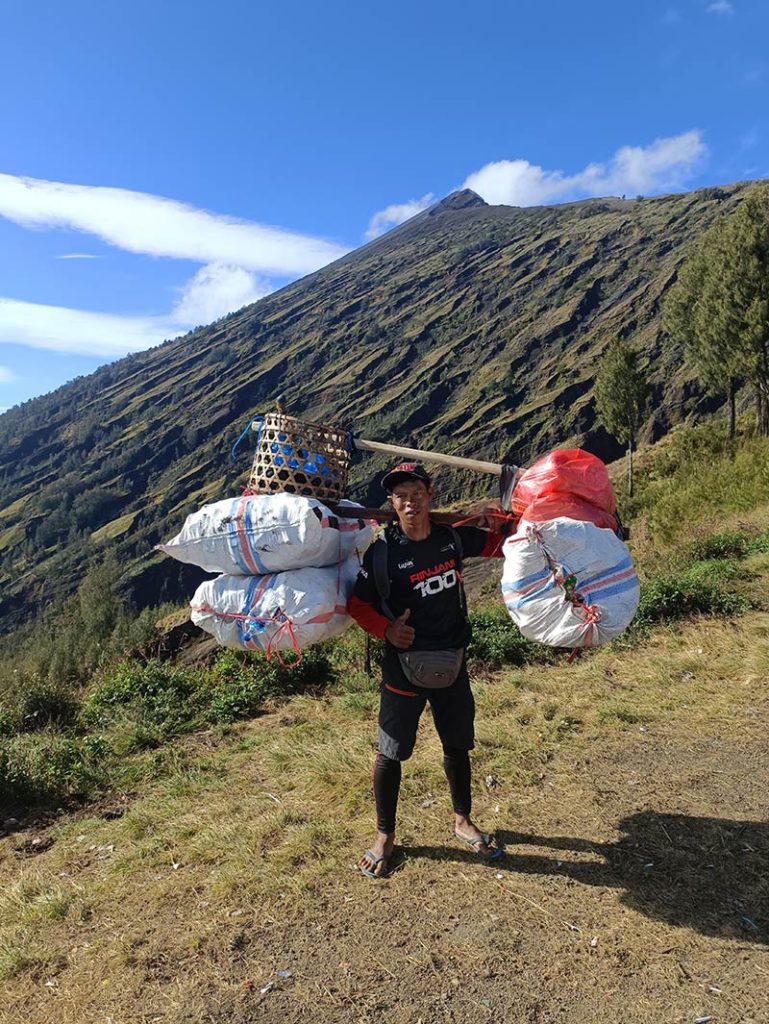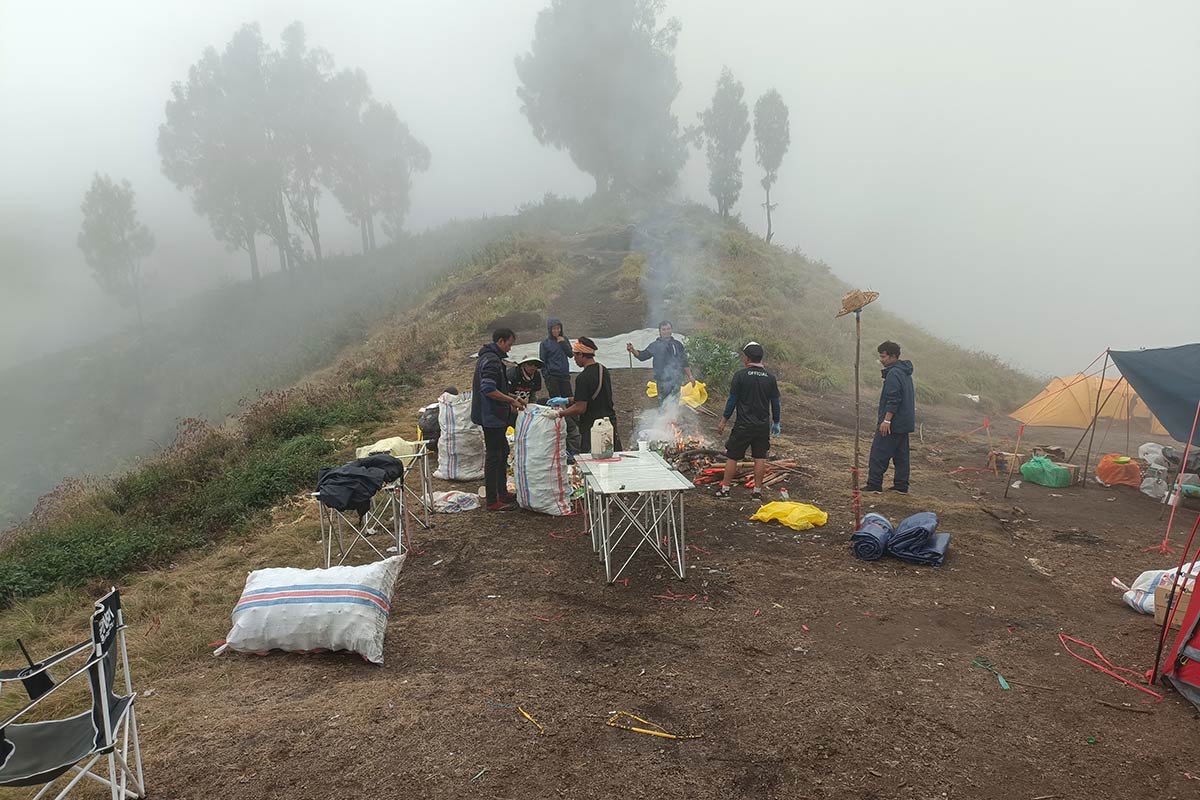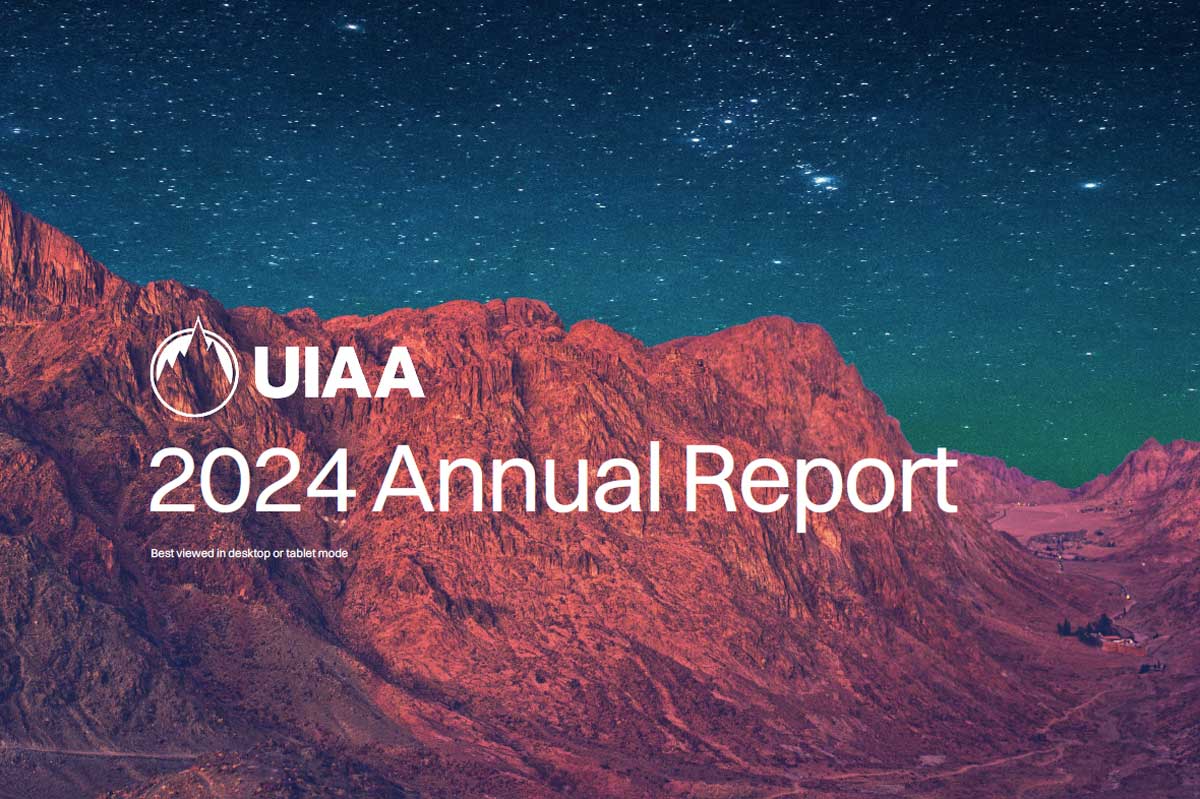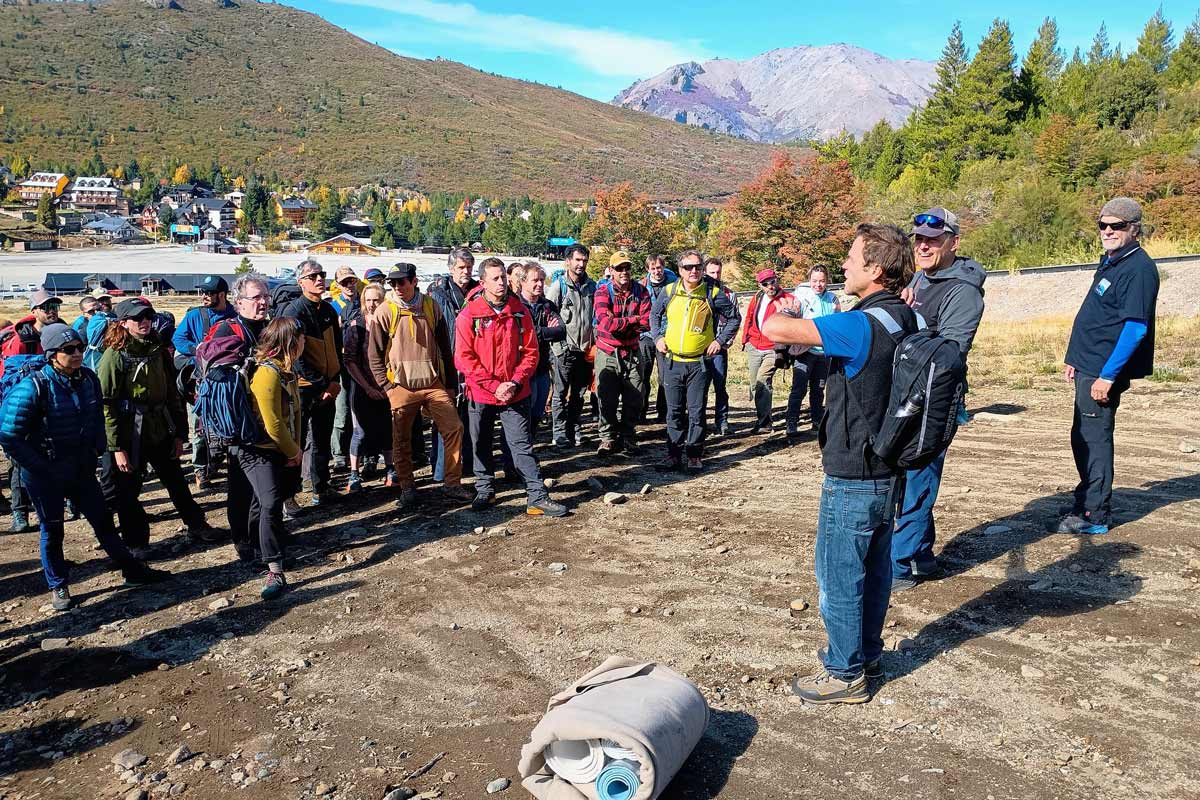OVERVIEW
This sustainability-led project aims to maintain Mount Rinjani National Park as an arena for climbing, mountaineering, or outdoor sports. The Federasi Panjat Tebing Indonesia (FPTI)/ Federation of Indonesian Climbing Activity intends to participate in taking concrete steps, including in terms of environmental cleanliness from the waste of hikers, climbers, and general tourists. It is very important to reduce the burden on the environment in the Mount Rinjani area in terms of user and community awareness, as well as the availability of services, facilities and infrastructure.
—
Vision, goals and objectives
Mountains and forests in Indonesia are at the forefront of protecting and preserving the environment. In addition to maintaining its sustainable use as a hiking, climbing, mountaineering and outdoor sport arena, the cleanliness of the mountain and forest areas can become a reflection and example for the general public to be passionate about protecting the environment.
With a height of 3,726m above sea level, Rinjani is the third highest peak in Indonesia. The next highest mountain, Semeru, as well as several other popular mountains, are mostly located on the densely populated island of Java. Rinjani, located on the smaller island of Lombok, receives fewer visits per year. So far, the pressure on the environment is still relatively low. But with the increasing frequency of international events including the newly built Mandalika racing circuit, Lombok’s popularity continues to increase.
Hiking and climbing activities in Rinjani also show an increasing trend. According to the Mount Rinjani National Park, during 2017-2020 approximately 23.6 tonnes of garbage were found on several hiking trails in Rinjani. This included cans, glass and plastic bottles, plastic packaging, gas cans, and mixed waste. There is a decreasing trend per year. So, If this challenge is not completed, then the natural damage on Mount Rinjani will increase.
Goals
To make Mount Rinjani National Park able to maintain its sustainability as an arena for climbing, mountaineering or outdoor sports, the Indonesian Rock Climbing Federation intends to participate in taking concrete steps, including in terms of environmental cleanliness from the waste of hikers, climbers, and general tourists. It is very important to reduce the burden on the environment in the Mount Rinjani area in terms of user and community awareness, as well as the availability of services, facilities, and infrastructure.
Objectives
• Build monitoring posts at the entrance of the hiking trails, in collaboration with the Rinjani National Park Agency;
• Installation of trash bins in strategic places along the hiking trail;
• Installation of road signs along with an appeal to protect the environment;
• Regular monthly cleaning up;
• Train local volunteers for hiking trail cleaning personnel as well as supervision of hikers and tourists.
• Increase the awareness of cleanliness and environmental sustainability among residents living around Mount Rinjani.
Expected implementation and outcomes
Objective:
Increased the awareness of cleanliness and environmental sustainability among residents living around Mount Rinjani, climbers, and mountaineers.
Outcome:
Improved ability of local communities, climbers, and mountaineers on mountain cleanliness in Mount Rinjani.
OUTPUT 1.1: 100 local and youth communities’ groups, climbers, and mountaineers have better understanding on the promoting environmental sustainability and cleanliness to Mount Rinjani.
Activity 1.1.1: Facilitating campaign and education of cleanliness and how to preserve environment in Mount Rinjani’s surrounding (Week 2 in 1st Month of project).
Indicators of activity 1.1.1:
– At least 1 (one) time campaign and education of cleanliness and how to preserve environment in at least two villages near Mount Rinjani.
– At least 50 people are involved from each village
– At least 50% of the participants are female, mountaineers, and climbers involved in training.
Activity 1.1.2: Facilitating training on a community-based mechanism (ToC) to promote cleanliness and environmental sustainability in two villages near Mount Rinjani (Week 2 in 2st Month of project).
Indicators of activity 1.1.2.:
– At least 1 (one) time ToC trainings and coaching on promoting cleanliness and environmental sustainability.
– At least 15 people from each village are involved.
Activity 1.1.3: Facilitating field action to promote cleanliness and environmental sustainability in Mount Rinjani (action to clean garbage in mount track of Mount Rinjani (Week 4 in 2st Month of project and Week 2 in 3rd Month of project).
Indicators of activity 1.1.3.:
– At least 2 (two) times field action on promoting cleanliness and environmental sustainability by clean garbage in the track of Mount Rinjani.
– At least 30 people who got training are involved.
Total duration of the project: three months.

Climbing, mountaineering or outdoor sport focus
Mount Rinjani is part of the goals of the Seven Summit of Indonesia.
Since 2013, Rinjani has become the permanent arena of the annual international trail running Rinjani 100 competition. In 2022, participants from 29 countries participated in the competition.
Best practice in mountaineering and mountain-based sports for mountain protection
The magnificence of Mount Rinjani is undeniable. Many climbers from all over the world come to witness its beauty, but the fate of this mountain is in danger of being damaged by piles of garbage brought by climbers. Every year, under normal conditions before the Covid-19 pandemic, 90 thousand people climbed Mount Rinjani. Visitors to Mount Rinjani come from domestic tourists as well as from foreign tourists.
It is common for climbers to bring food and drinks in plastic packaging for practical reasons. Actually, there is no prohibition against bringing plastic to the mountains, but the problem is when the garbage they are brought is thrown away carelessly.
There will be a problem if more and more people litter when climbing mountains, it means that the amount of garbage is piling up and scattered everywhere.
The existence of garbage in the mountains is of course not only limited to disturbing the scenery and making nature look dirty. More than that, in the end, the garbage left on the mountain will disturb the mountain and forest ecosystem.
Moreover, plastic is a waste that is difficult to decompose. The waste will be carried to the river or the nearest water source, then pollute the water, endanger animals, and disrupt the stability of nature.
Based on the above, this project can be an example of best practices in waste management on mountain climbing tourism routes in Indonesia and also in the world. Many mountains in the world have difficulty in handling waste as a number of climbers and mountaineers climb the mountain. The forming of a local community that cares about the cleanness of Mount Rinjani, who lives around the mountain is also the key to the sustainability of this project.
This community is tasked to give socialisation about the cleanliness of the mountain to all the mountain climbers and the people who live around the mountain. This community will also cooperate with national park managers and local governments to carry out their duties in maintaining and campaigning to keep Mount Rinjani’s environment clean.
With a community consisting of people who live around the mountain, this project can continue to run by itself after its timeline as a nominated UIAA MPA project.
—
To discover more about the UIAA Mountain Protection Award please click here.



